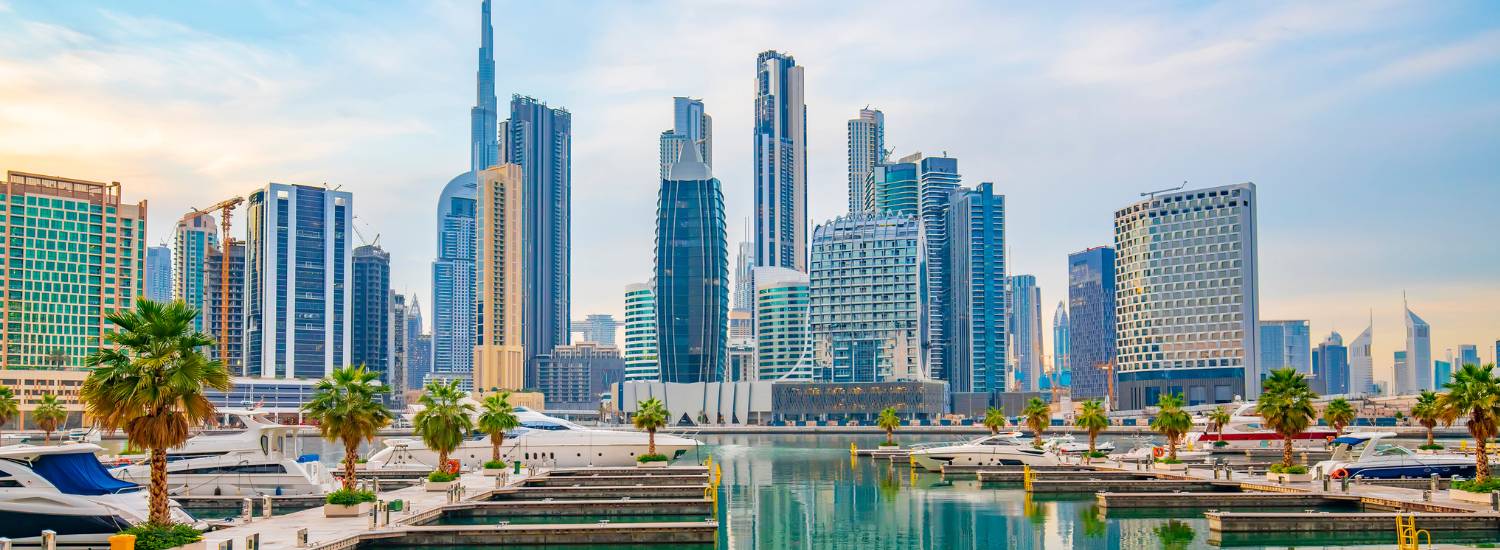Before packing, check this list of items prohibited from entering a particular country or region.
Key takeaways
- The easiest countries to get citizenship include Italy, Portugal, Malta, Hungary, Dominica, Grenada, St Kitts and Nevis, and Antigua and Barbuda.
- There are several routes to citizenship, including ancestry, naturalisation, marriage, and investment, but each nation has its own requirements.
- Citizenship by descent (or jus sanguinis) is when a country grants a passport based on family heritage.
- Popular citizenship by investment countries include Dominica, Grenada, St Kitts and Nevis, and Antigua and Barbuda.
- The easiest European countries to get citizenship for are Italy, Hungary, Portugal and Malta.

What are the easiest countries to get citizenship?
The easiest countries to get citizenship in 2025 include Italy, Portugal, Malta, Hungary, Dominica, Grenada, St Kitts and Nevis, and Antigua and Barbuda, according to Harvey Law Group and Global Citizen Solutions.
Gaining citizenship by descent is often quicker and cheaper than applying through residence or investment routes...
How to get citizenship in other countries
To get citizenship in other countries, there are several routes, including ancestry, naturalisation, marriage, and investment, but each nation has its own requirements. In most countries, you must have lived there for a set period as a legal resident and demonstrate your integration into society, such as getting a job, learning the language, and paying taxes.
For example, in Canada, you must become a permanent resident, live there for at least three of the last five years, pay taxes, and pass a language and knowledge test. In Australia, you can apply after four years of legal residence (with at least one year as a permanent resident) if you can demonstrate "good character" and pass a citizenship test.
In South America, countries such as Argentina, Paraguay, and Uruguay offer pathways to citizenship within two to three years of legal residence (five years for single people in Uruguay). Applicants in all three nations must demonstrate integration into society and economic self-sufficiency.
Several African countries offer citizenship through naturalisation, typically after five to ten years of legal residence. For example, South Africa allows permanent residents to apply after five years (and one year as a permanent resident), provided they demonstrate good character, economic participation, and social integration. Kenya requires at least seven years of residence, proof of employment or business activity, tax contribution, and community involvement.
In the Middle East, the United Arab Emirates (UAE) and Qatar rarely grant citizenship. UAE citizenship is usually limited to children of Emirati fathers or those with exceptional skills, such as leading intellectuals and scientists, who can make significant contributions to the country. Such applicants must reside in the UAE for 30 continuous years, be proficient in Arabic, and demonstrate good conduct. Similarly, naturalisation in Qatar requires 25 years of legal residence, Arabic proficiency, good conduct, and adequate income to support oneself.
Many Asian countries maintain high thresholds for citizenship. In Malaysia, applicants must have lived there for at least 10 of the 12 years before applying, with the last year continuous. They must demonstrate Malay language proficiency, possess "good character", and intend to reside in Malaysia permanently. Expats can naturalise in Japan after five consecutive years of residence. Learning Japanese is strongly recommended, and applicants must maintain good conduct, demonstrate financial stability and renounce any other passports.
Citizenship laws by country
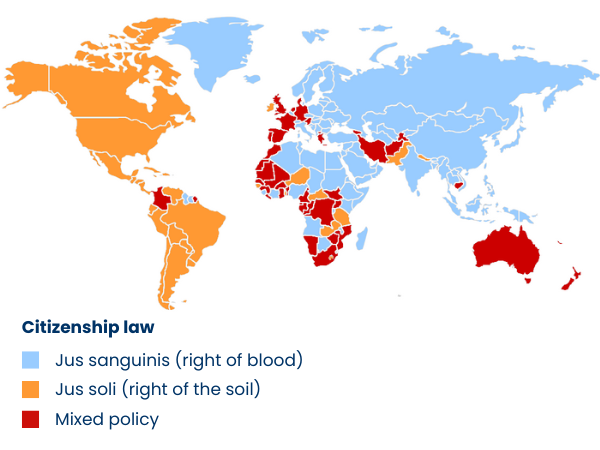

What is citizenship by descent?
Citizenship by descent, or jus sanguinis, is when a country grants a passport based on family heritage. You may qualify if your parents, grandparents, or, more rarely, great-grandparents were citizens. Gaining citizenship by descent is often quicker and cheaper than applying through residence or investment routes, and helps preserve cultural ties. Each country sets its own rules.
The application process typically involves:
- Proving family links with official documents, such as birth and marriage certificates,
- Ensuring your ancestor did not renounce their citizenship before passing it on,
- Meeting residency, language, or integration requirements set by the country,
- Registering with the relevant government authority, such as a foreign births register,
- Paying administrative fees and application fees,
- Providing additional evidence of cultural or historical connection to the country.
Citizenship by descent countries
Citizenship by descent is available in over 50 countries, including Ireland, Italy, the United States, the United Kingdom, Germany, South Africa, Brazil, Japan, the Philippines, and China. Eligibility criteria and generational limits vary by country.
Here's an overview of the ten most popular nations that offer citizenship by descent:
- Ireland: citizenship is available through an Irish parent or grandparent; great-grandparents may qualify under specific conditions.
- Italy: citizenship by descent is available through an Italian parent or grandparent. However, a recent tightening of rules may limit claims through great-grandparents.
- Poland: citizenship can be claimed through ancestry, including great-grandparents, provided the ancestor was born in Poland or its former territories and did not renounce Polish citizenship before the applicant's birth.
- Germany: offers citizenship by descent to those with a German parent, grandparent, or great-grandparent, including special provisions for descendants of Nazi regime victim.
- Portugal: citizenship by descent includes parents and grandparents, and requires in-person processing in Portugal.
- Spain: you can claim citizenship through a Spanish parent or grandparent. However, applicants must pass language and cultural exams.
- Hungary: offers citizenship to those with Hungarian ancestry without a language requirement; naturalisation is possible through marriage after 5 years.
- Croatia: allows all descendants of Croatian citizens, including great-great-grandchildren, as long as you can prove the lineage.
- The UK: citizenship by descent is typically only for children of British-born citizens. However, individuals with a grandparent born in the UK or UK territories may be eligible for a UK Ancestry visa.
- France: children, grandchildren, and sometimes great-grandchildren of French citizens, including those with ties to former colonies, can claim citizenship.
If you marry someone from another country, are they automatically a citizen?
If you marry someone from another country, it does not automatically make you a citizen. Instead, marriage is usually a pathway to immigration, then eventually to citizenship. For instance, in the US, a spouse must first become a permanent resident and then wait several years before applying for citizenship. Whereas, foreign nationals who marry a French citizen can apply for nationality in France after four years of marriage, provided they live together and meet language requirements.
No countries grant citizenship instantly after marriage. Authorities usually undertake interviews and ask for proof of a genuine relationship, such as joint financial records and evidence of living together. Couples must be prepared to meet all legal, cultural, and administrative requirements the country sets before authorities approve their citizenship.
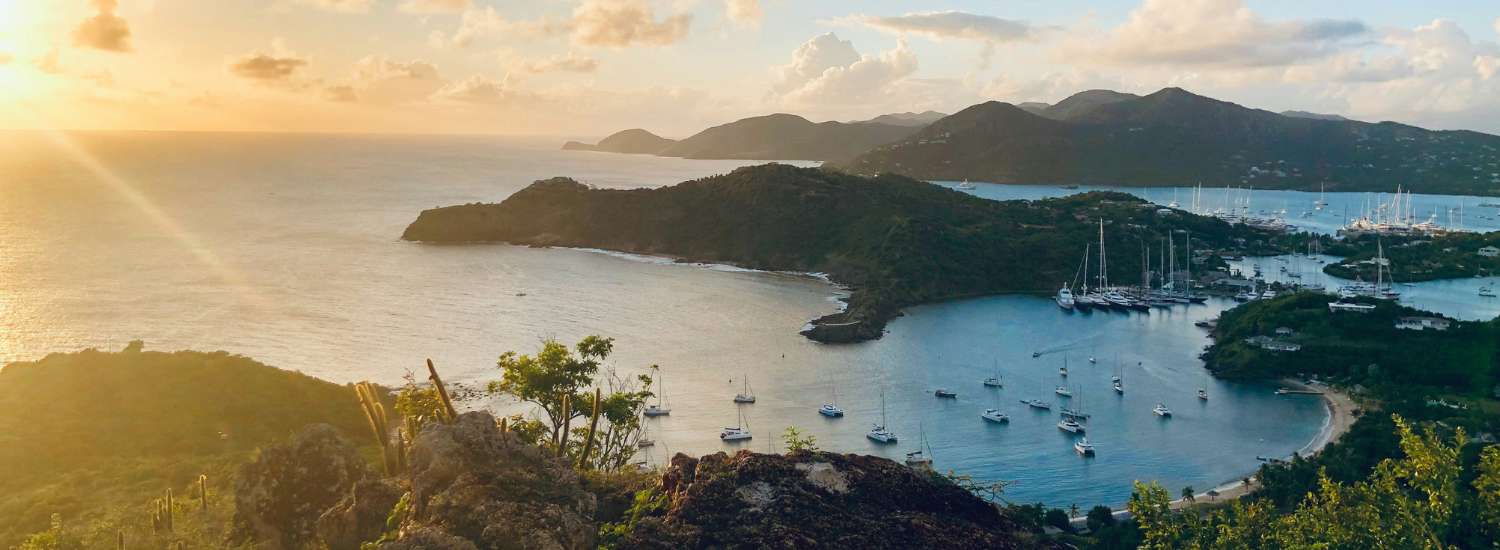
Popular citizenship by investment countries in 2025*
Popular citizenship by investment countries in 2025 include Dominica, Grenada, St Kitts and Nevis, and Antigua and Barbuda, according to investment migration consultants Global Citizen Solutions.
Each nation is an English-speaking island in the Eastern Caribbean and a member of the UK's Commonwealth of Nations. They all operate under a parliamentary democracy, with a Governor-General representing the monarch, and rely heavily on tourism, agriculture, and offshore financial services for income.
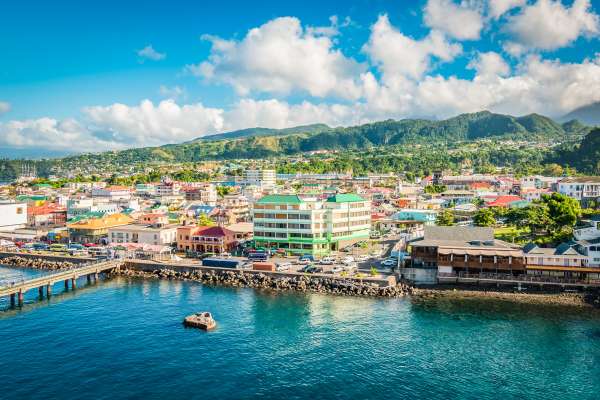
1. Dominica
Dominica's Citizenship by Investment (CBI) Programme has two pathways: a non-refundable minimum contribution of US$200,000 (around €169,822/£148,233) to the Economic Diversification Fund (EDF) or a real estate investment.
Applications typically take three to four months to process, and can include family members, such as a spouse, dependents under 18, dependents 18–30 in full-time education, and parents or grandparents over 65.
A Dominica passport offers the right to live, work, and study, visa-free travel to 143 countries (including Argentina, the Schengen Area, and Singapore), automatic citizenship for eligible dependents, and no wealth, inheritance, capital gains, or foreign income taxes.
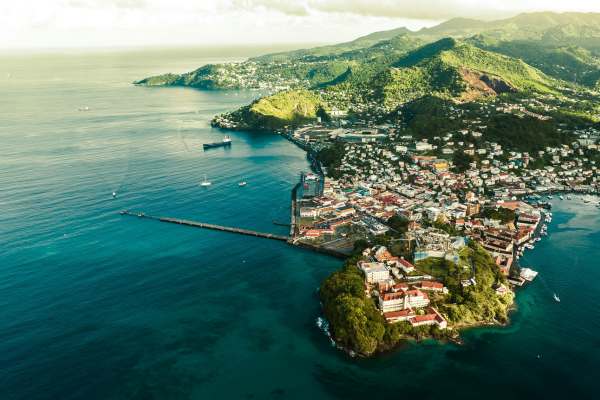
2. Grenada
The Grenada Investment Migration Agency manages the CBI Programme. You can gain citizenship by contributing at least US$235,000 (around €199,541/£174,173) to the National Transformation Fund (NTF) or invest in government-approved real estate.
Extra fees include a government fee of US$50,000 (around €42,455/£37,058) plus US$1,000–5,000 (around €849–4,246/£741–3,706) for applications, family members, due diligence, and interviews. Eligible dependants include spouses, parents, children under 30, and siblings over 18.
Benefits of a Grenadian passport include the right to live, work, and study, visa-free travel to over 146 countries and eligibility to apply for a US E-2 Investor Visa after 3 years.
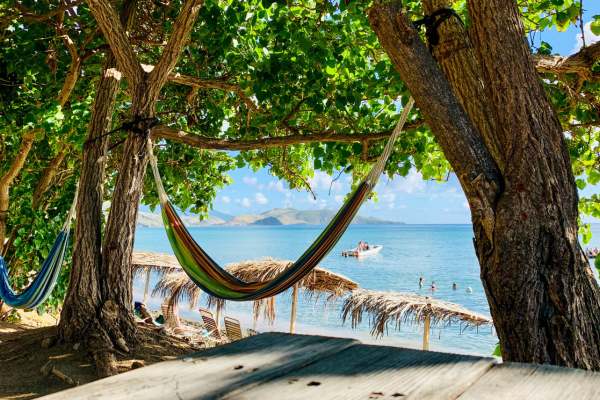
3. St Kitts and Nevis
The St Kitts & Nevis CBI Programme allows applicants to gain citizenship through a non-refundable contribution starting at US$250,000 (around €212,278/£185,291) to the Sustainable Island State Contribution (SISC) or by investing in government-approved real estate from US$325,000 (around €275,961/£240,878), held for at least seven years.
Further fees ranging from US$10,000-50,000 (around €8,491-42,456/£7,412-37,058) cover due diligence, spouse, parents over 55, and dependents under 18 or 18-26 fees.
A St Kitts & Nevis passport grants full citizenship for qualifying family members, allows dual nationality, and provides visa-free access to 154 countries.
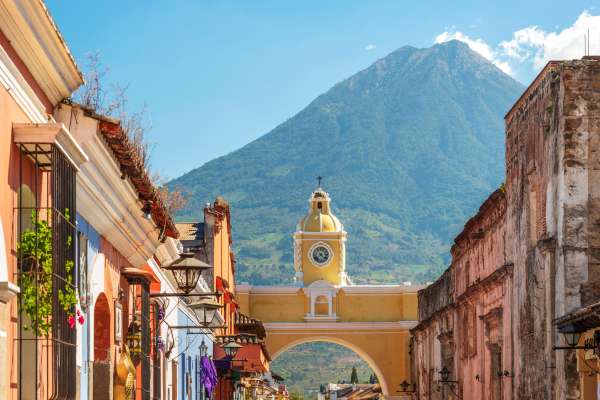
4. Antigua and Barbuda
Antigua and Barbuda's CBI Programme includes a non-refundable payment of US$230,000 (around €195,295/£170,468) to the National Development Fund (NDF), and a US$260,000 (around €220,769/£192,703) contribution to the University of the West Indies.
Additional fees include due diligence and processing, with total costs varying based on family size and investment route.
Obtaining an Antigua and Barbuda passport grants citizenship to up to four family members and visa-free entry to 151 worldwide countries, including Brazil, the Schengen Area, and Hong Kong.
*figures accurate as of 2025
Countries offering citizenship for free
Some countries grant citizenship for free under specific circumstances. For example, many countries offer citizenship to children of foreign parents born on their soil. Brazil grants nationality at no extra cost to anyone born there, regardless of their parents' nationality or residence status. In the UK, citizenship is given at birth if one parent is a British citizen; otherwise, a child born in the UK to foreign-born parents can apply for citizenship at age 10.
Several nations extend free citizenship to diaspora communities. Armenia and Israel grant automatic citizenship to people of Armenian or Jewish heritage under their repatriation laws. In the year 2000, Ghana introduced its Right of Abode programme. It allows descendants of the African diaspora to apply for citizenship without investment costs.
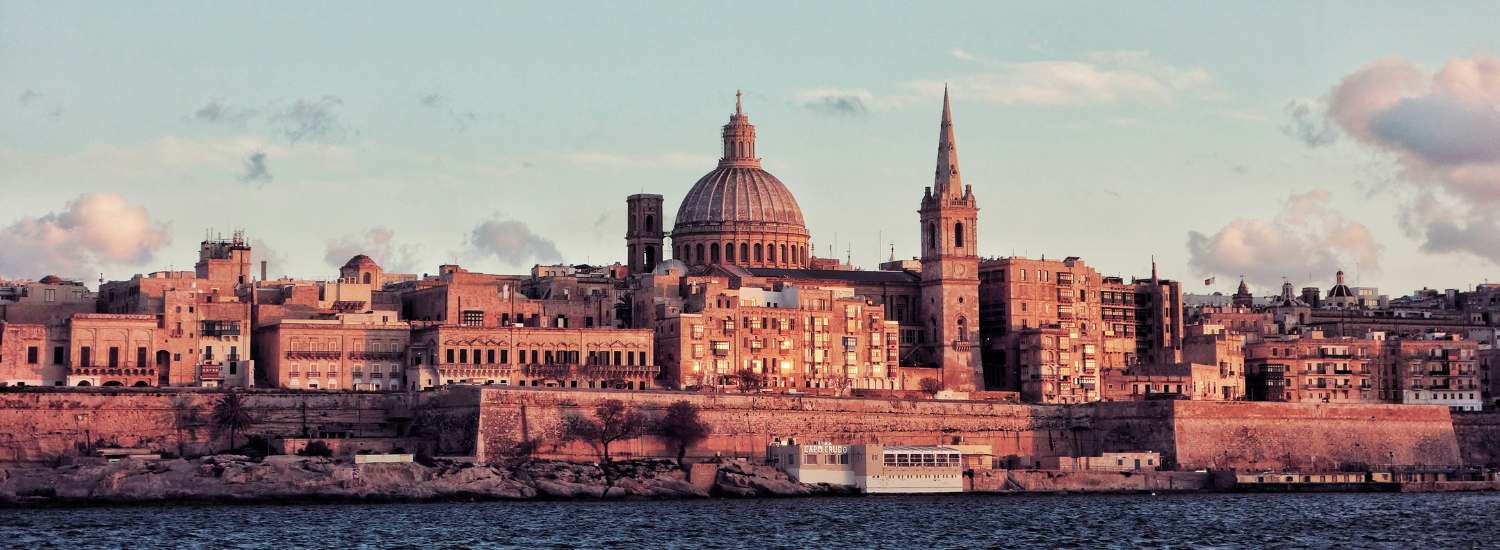
Easiest European countries to get citizenship*
The easiest European countries to get citizenship for in 2025 are Italy, Hungary, Portugal and Malta, according to multinational immigration law firm Harvey Law Group.

1. Italy
Italy's Golden Visa, also known as an investor visa, attracts wealthy non-EU investors. There are no language, minimum residency, education, or skill requirements.
Benefits include the right to live, work or study in Italy for you, your spouse and dependents under 18, access to healthcare, and visa-free travel in the Schengen Zone. You can apply for citizenship after ten years of legal residence.
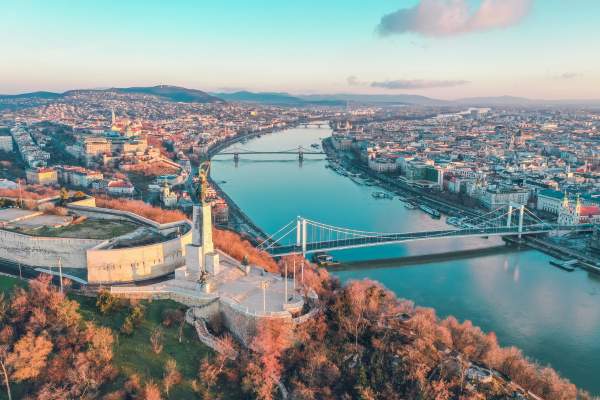
2. Hungary
The Hungarian Golden Visa programme allows non-EU nationals to obtain fast-tracked residency by investing €250,000 (around US$294,426/£217,806) in real estate.
It lasts 10 years, you can bring your spouse and children, and there are no language, skills, or medical tests. Applicants can apply for Hungarian citizenship after eight years of continuous residence.
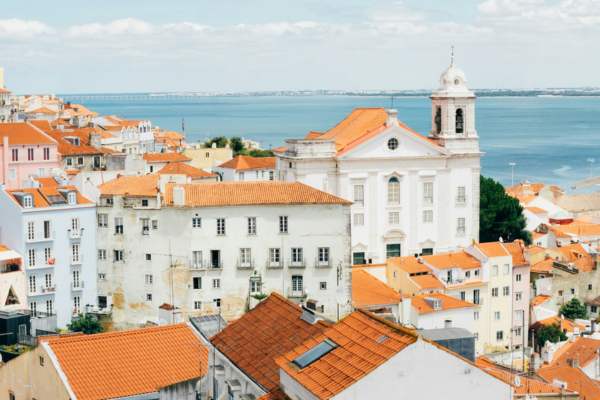
3. Portugal
Portugal's Golden Visa programme is the world's most popular citizenship by investment visa. You must not hold citizenship in the EU, EEA, or Switzerland, and have a clean criminal record.
Entrance is granted by creating at least eight new full-time jobs in Portugal, donating a minimum of €250,000 (around US$294,426/£217,806), investing at least €350,000 (around US$412,196/£304,929), or buying property valued at a minimum of €280,000 (around US$329,757/£243,943).
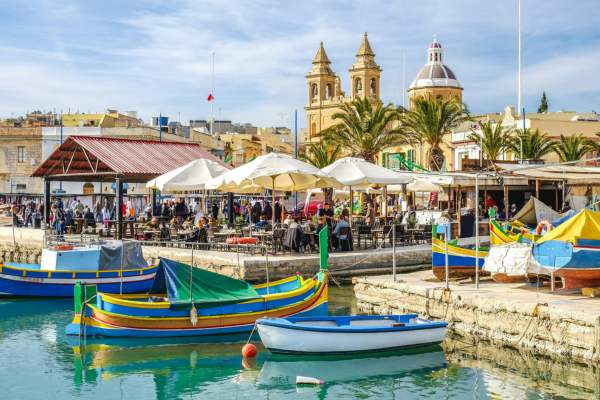
4. Malta
Malta's Permanent Residence Programme (MPRP) is a pathway for non-EU nationals, their spouses, and dependents to pursue long-term residency.
Applicants must make a qualifying investment, including purchasing or leasing residential property in Malta, contributing to the National Development Fund, and donating to an approved non-governmental organisation. After a period of legal residence, applicants may become eligible for Maltese citizenship via the naturalisation process.
*figures accurate as of 2025











